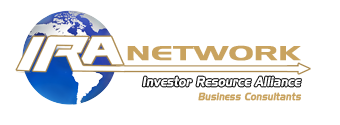Security Documentation and Offering
The following methods are used to raise anywhere from $100,000 - $10 million dollars or more through private stock offerings:
While Business Plans are an important facet of corporate fund raising, they are, by themselves, not desig ned to effectively raise investor capital. What is needed is a “mechanism” that provides the framework and structure necessary for a company to effectively solicit and receive capital investment from individual investors.
ned to effectively raise investor capital. What is needed is a “mechanism” that provides the framework and structure necessary for a company to effectively solicit and receive capital investment from individual investors.
Most people are aware of public stocks traded openly on the Pacific Stock Exchange, the New York Stock Exchange, The Toronto Stock Exchange and over the counter (OTC). Few are aware of the power of private stock offerings in raising capital for business ventures. In the opinion of many investment bankers, the best way to raise capital in today’s market, is issuing stock in your private company. This mechanism is provided by filing either Direct Public Offerings (DPOs in the form of a Reg A, U-7m, or Small Corporate Offering Registration (SCOR), Limited Liability Partnership Offerings (LLPOs), or Private Placement Memorandums (PPMs). In most cases the company only issue, 15%-35% of its company stock (depending on the amount of capital sought) so that you retain the majority of the shares and the control of your company. This can be done easily if you have the knowledge. We can refer you to IRA Network Affiliates who are licensed broker dealers or to securities attorneys to handle your securities needs. These are competent professionals who can structure these private offerings and assist you in raising the money needed.
The best two things about stock offerings (which there are many) are no loan payments and no risk of your personal assets, such as your home, car etc. By selling and issuing stock in your corporation – each stock certificate sold represents money to your business.
DPO vs. IPO
What is the difference between a Direct Public Offering (DPO) and an Initial Public Offering (IPO)? Usually an Initial Public Offering is an underwritten public offering. This means than an underwriter, usually an Investment Banker develops a public market for the stock and often purchases shares to support the offering. Generally, only large offerings, which have gained tremendous publicity in the public eye, qualify for an IPO. Registrations such as SCORs, REG As, SB-1, and SB2 are normally too small to attract the attention of national underwriters, yet still represent significant sources of capital.
The Private Placements
Simply stated, it is against the law to sell stock unless you are licensed to do so or can qualify for an exemption from the SEC rules. Section 5 of the 1933 Act clearly states that “it is unlawful for any person,  directly or indirectly to sell a security unless a registration statement has been filed, or to sell a security or deliver a security after the sale unless a registration statement is in effect.” The 1933 Act does, however, contain some exemptions, but they fall short of really helping small businesses.
directly or indirectly to sell a security unless a registration statement has been filed, or to sell a security or deliver a security after the sale unless a registration statement is in effect.” The 1933 Act does, however, contain some exemptions, but they fall short of really helping small businesses.
It was this concern that prompted Regulation D, better known as Reg D, which became effective April 15, 1982. Reg D is not just another exemption but one of the key exemptions for small businesses that wish to raise money by selling stock (equity). Reg D contains the kind of exemptions that many entrepreneurs have been looking for. These exemptions can easily be used in private or limited offerings. Thus, the Reg D private placement document, better known as the Private Placement Memorandum, has been considered to be one of the most workable exemptions for small offerings.
Regulation D Offerings
A company seeking growth capital must be able to offer and accommodate fractional investments from individual investors. Nothing can accomplish this more effectively than the structure and framework of a Regulation D Offering. These offerings provide: a concise mechanism and process for receiving fractional and other capital investments; the appropriate documentation for receipt of those investments; and, a tool for leveraging securities brokers as a resource for capital funding. Regulation D Offerings have proven successful for a wide variety of transaction and industry types: corporate seed capital; corporate expansion capital; film production capital; real estate equity funding (acquisitions, development projects, golf courses, and rehab); capitalization for early to pre-IPO stage Internet and technology companies; expansion funding for retail companies; and, product development and distribution funding.
In addition to being able to effectively raise capital from individual investors, a Regulation D Offering enables our clients to utilize our vast and effective network of sophisticated and regulated funding resources unavailable to companies that just have a business plan. These resources include brokerage firms, fund managers, and individual stockbrokers, and represent the most efficient and effective resources for raising equity capital. IRA will first assist in the preparation, formatting, and finally profiling your offering memorandum for your selective distribution among our extensive database of brokerage houses specializing in Regulation D offerings.
Regulation D programs are typically called “Direct Public Offerings” because the stock being sold, while privately held, is being offered “directly” to the public by the subject company. The DPO programs were designed for small businesses and are therefore less complex than a fully registered Initial Public Offering but retain similar benefits to an IPO. Most companies that use the DPO programs typically issue (or sell) between 15-35% of the company’s capital share – depending on whether it is a first round funding or later stage funding and/or the amount of venture capital being raised through the offering. The company principals retain control over the majority of the issued shares and, thus, retain control over the company. Investors receive a return based on the performance of the company and the amount of shares they own.
SCOR (Small Corporate Offering Registration)
SCOR is intended to help small and startup companies raise venture capital through a simplified and relatively inexpensive public stock offering. Stock sold under a SCOR can be freely traded in the secondary market, making the investment more liquid and thereby appealing to investors. SCOR securities can be resold into established secondary markets and permit the sale of securities to an unlimited number of investors, accredited or non-accredited. It is often referred to as a Registration By Exemption, because it is basically a hybrid between a Public Offering and a Private Placement. However, SCOR is not for every small company and should not be used without consulting with experienced investment professionals.
Companies filing a SCOR (also known as a U-7 Registration) are subject to some requirements and an application process:
- The U-7 registration form has 50 questions. In most cases, the answers to these questions provide potential venture capital investors with adequate information about: the company ownership, business practices, intentions, risks, competition, stock allocations, and proposed distribution.
- Before any stock can be sold, the completed U-7, together with supplemental exhibits including financial statements, needs to be approved by the state securities administrator in each state in which the stock is to be offered. On approval, the U-7 becomes the prospectus or offering circular and may then be photocopied and given to potential investors. An expensive printed prospectus is not required.
- A U-7 can be drafted by company officers, assisted by their attorney and CPA, and submitted for approval to the state corporate commissioner. However, a professional consulting group approach enhances the prospects for a successful offering.Click here. The IRA Network can assist you with your document formatting and provide a securities attorney and CPA to guide the application through the state examination procedure and structure the company’s stock offering.
What else do these documents provide?
A financial document such as a Private Placement Memorandum or a SCOR (Small Corporate Offering Registration) is much more than a tool to obtain financing. It also contains your business plan which clarifies your company’s direction and outlines your corporate philosophy. A professionally written Private Placement, in combination with a well-written Business Plan provides a blueprint for your company. Each communicates how you expect your business to grow and what it takes to get there. These documents are extremely comprehensive – describing your company, its products, state suitability standards, financial information, business model, management team, markets, competition and business risks. This document is meaningful to investors and must pass the scrutiny of any regulatory agency.
How IRA can help
IRA will first thoroughly analyze your current business plan or business plan concept for a nominal fee. Then, we formulate a plan of action for packaging and marketing your project to the investment community. If your company does not have a current Business Plan, IRA will update or write one for you (see HERE). We will also refer you to a licensed broker dealer/attorney to structure or enhance your securities documents as needed. We can also assist you in integrating your Business Plan into your Private Placement Memorandum.
IRA Fee Structure
![]() Generally speaking, the fee to do both a business plan (or enhance an existing plan to meet SEC requirement for the sale of securities) and private placement range from $7,500 – $32,500 which includes a complete presentation package.
Generally speaking, the fee to do both a business plan (or enhance an existing plan to meet SEC requirement for the sale of securities) and private placement range from $7,500 – $32,500 which includes a complete presentation package.
- There is very nominal cost for reviewing your Business Plan ($125.00) and evaluating your company’s potential for a successful stock offering. There will be no other fees unless it is mutually agreed upon that we take on your project.
- Once your project has been reviewed we will provide you with a written proposal outlining the costs associated with any or all of the following services:
- Prepare or update your business plan and financials
- Prepare all necessary documentation and forms
- Complete public relations / marketing package
- PowerPoint Presentation
- Prepare press release
- Signed review by our IRA Network securities attorney
- Signed review by our IRA Network CPA,
- Provide a capital database of investors and lenders to secure underwriting
- In some instances, we charge a pre-determined base fee in the form of stock options for assisting you in the packaging of your business plan. In the case of a loan, we get an origination fee** which is based on the source amount of capitalization. In so far as we would like to share in your growth, and when it is to our mutual advantage, IRA will discuss taking additional stock options to offset the cost of business plan packaging.
A SCOR or Private Placement may be just the vehicle you need to get your company to the next level, however, as we discussed, they are not for everyone. With our nominal front-end fee and reliance on stock options or origination fees, it is to our mutual interest to help get you financed. Therefore, we choose our clients very carefully. If we take on your project, we anticipate successful financing of your business venture.
* Loan origination fees must be compliant with state and Federal laws.
Disclaimer:
Neither IRA nor any of its principals, officers, or employees may sell or solicit buyers on behalf of client or be paid a commission or similar remuneration on the sale of client’s stock (as defined by Rule 506 RegD and promulgated by the SEC).
A SCOR or Private Placement may be just the vehicle you need to get your company to the next level, however, as we discussed, they are not for everyone.
We look forward to the possibility of helping your project get started with a business plan and marketing public relations package that will communicate your business in the most professional manner.
Disclaimer
Neither IRA nor any of its principals, officers, or employees may sell or solicit buyers on behalf of client or be paid a commission or similar remuneration on the sale of client’s stock (as defined by Rule 506 RegD and promulgated by the SEC).
A SCOR or Private Placement may be just the vehicle you need to get your company to the next level, however, as we discussed, they are not for everyone.
We look forward to the possibility of helping your project get started with a business plan and marketing public relations package that will communicate your business in the most professional manner.


